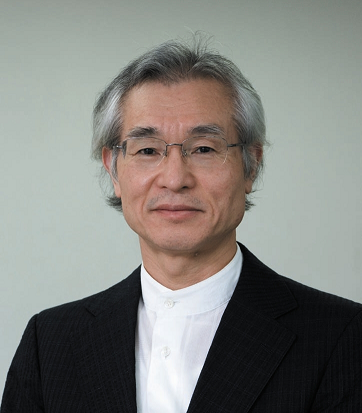

2019 IEEE Pacific Rim Conference on Communications, Computers and Signal Processing
August 21-23, 2019, University of Victoria, Victoria, B.C., Canada


August 21-23, 2019, University of Victoria, Victoria, B.C., Canada
 |
Speaker: Fumiyuki Adachi, Specially Appointed Professor for Research Affiliation: Research Organization of Electrical Communication, Tohoku University, 2-1-1 Katahira, Aoba-ku, Sendai, 980-8577 Japan E-mail: adachi@ecei.tohoku.ac.jp URL: http://www.mobile.ecei.tohoku.ac.jp
AbstractThe 5th generation (5G) mobile communication services are now about to start. 5G demands a significant improvement in the spectrum efficiency. A promising approach is further exploitation of spatial dimension. In this talk, after briefly overviewing the evolution of mobile communications networks from 1G to 5G, we will introduce the concept of distributed MIMO for 5G. Distributed MIMO is a type of centralized radio access network (C-RAN). In distributed MIMO, a number of antennas are spatially distributed in a base station (BS)-cell area. Some antennas near a user is selected for performing the cooperative signal transmission. To boost up the spectrum efficiency, the same radio resource is simultaneously reused within BS-cell area. Adjacent BSs need be loosely coordinated to improve the scalability of RAN. As a result, the inter-cell interference is produced as well as the intra-cell interference. Therefore, the interference coordination is a very important issue. We will report the latest performance evaluation of distributed MIMO with cooperative signal transmission, interference coordination, etc. Also, we will discuss about RAN evolution towards 5G advanced.
BiographyFumiyuki Adachi received the B.S. and Dr. Eng. degrees in electrical engineering from Tohoku University, Sendai, Japan, in 1973 and 1984, respectively. In April 1973, he joined the Electrical Communications Laboratories of Nippon Telegraph & Telephone Corporation (now NTT) and conducted various researches on digital cellular mobile communications. From July 1992 to December 1999, he was with NTT Mobile Communications Network, Inc. (now NTT DoCoMo, Inc.), where he led a research group on Wideband CDMA for 3G systems. Since January 2000, he has been with Tohoku University, Sendai, Japan. His research interests are in the area of wireless signal processing (multi-access, equalization, antenna diversity, adaptive transmission, channel coding, etc.) and networking. He is an IEEE Life Fellow and an IEICE Fellow. He was a recipient of the IEEE Vehicular Technology Society Avant Garde Award 2000, IEICE Achievement Award 2002, Thomson Scientific Research Front Award 2004, Ericsson Telecommunications Award 2008, Prime Minister Invention Award 2010, KDDI Foundation Excellent Research Award 2012, C&C Prize 2014, IEEE VTS Stuart Meyer Memorial Award 2017, and IEEE ComSoc RCC Technical Recognition Award 2017. He is listed in Highly Cited Researchers 2001 (https://clarivate.com/hcr/researchers-list/archived-lists/). |
 |
Speaker: Gary Perkins, Chief Information Security Officer (CISO) for the Province of British Columbia
AbstractCybersecurity has never been as imperative as it is today. No organization globally is immune to cyber attack. Global annual cybercrime will cost the world in excess of $6 trillion annually by 2021 and global spending on cybersecurity defence is projected to exceed $1 trillion over the next 5 years. Most organizations have failed to invest at a rate that has sustained previously achieved capability levels. Others have never reached a level of security maturity adequate to mitigate risk to an acceptable level. It is critical to support a culture of cybersecurity and understand more about this challenging problem including what is happening, who is doing it, why they’re doing it, and the impacts.
BiographyGary Perkins is the Chief Information Security Officer (CISO) for the Government of British Columbia. As the Executive Director of the Information Security Branch, he is responsible for providing cybersecurity services in support of the province. He has over 20 years’ experience in information technology, risk management, and cybersecurity. Prior to joining the BC Government, he worked in the private sector as chief of staff for security at TELUS and, earlier in his career, led teams responsible for incident response, operations, delivery, and architecture for both corporate and managed security services customers. A certified information systems security professional (CISSP) since 2004, Perkins also holds an MBA from Simon Fraser University’s Management of Technology program. |